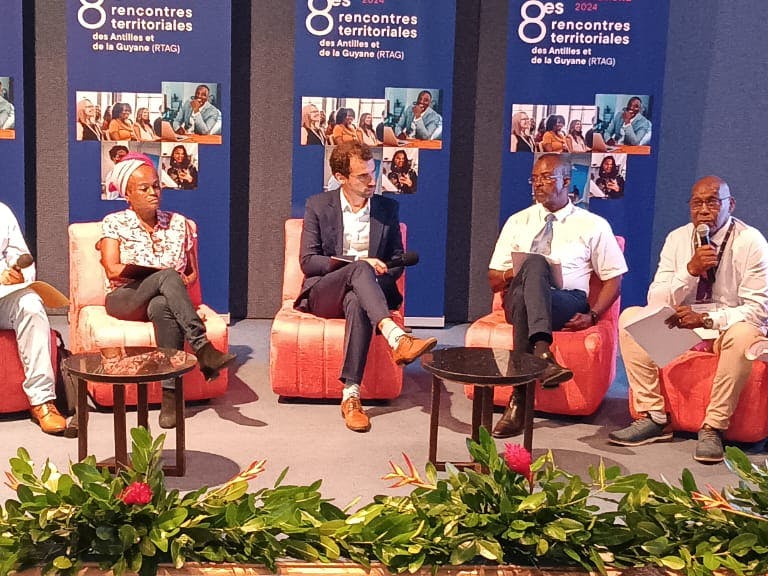Sustainable development: Saint-Martin is committed to flood prevention and the preservation of aquatic environments
A delegation from Saint-Martin, led by 2nd Vice-President Bernadette DAVIS, participated in the Seminar on Aquatic Environments and Flood Prevention (MAPI) organized in Guadeloupe by the Regional Council and the Department of the Environment, Planning and Housing (DEAL). This event helped to strengthen understanding of the issues related to aquatic environment management and flood prevention.
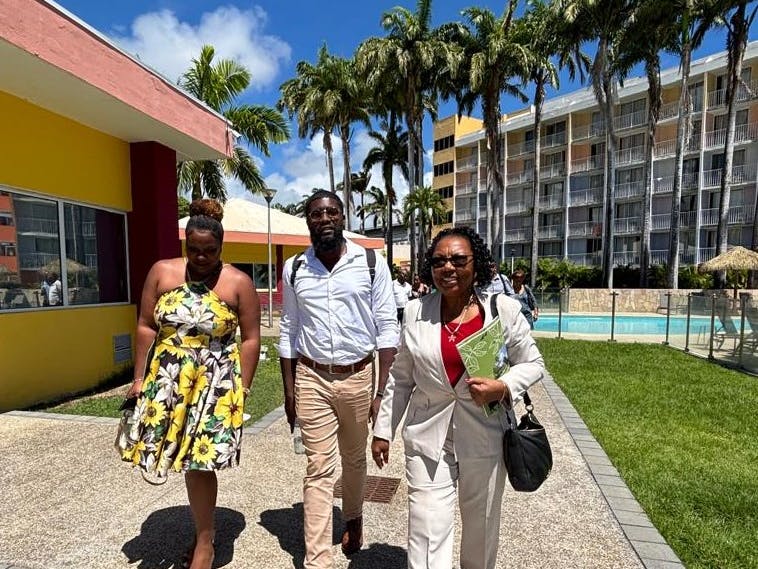 Sustainable development: Saint-Martin is committed to flood prevention and the preservation of aquatic environments
Sustainable development: Saint-Martin is committed to flood prevention and the preservation of aquatic environmentsLed by Mrs. Bernadette Davis, Vice-President in charge of the Environment and Living Environment, the Saint-Martin delegation was composed of Mrs. Gloria Chance, Head of the Natural Heritage and Biodiversity Department, and Mr. Hakeem Richardson, Head of the Water Cycle Department.
During her speech, Ms. Bernadette Davis had the opportunity to highlight Saint-Martin's experience within the framework of the Preliminary Study Program for the Flood Prevention Action Program ( PEP-PAPI ). She recalled the vulnerability of the territory to natural risks and the effects of climate change, aggravated by increasing urbanization. Particular emphasis was placed on the restoration of ponds, whose role is essential for rainwater management and flood prevention.
The delegation presented the financial commitments of the Collectivité de Saint-Martin to ensure the regular maintenance of rainwater drainage networks and ravines. It emphasized the need to adopt environmentally friendly methods, such as clearing and mowing, in order to preserve biodiversity.
Representatives from Saint-Martin also had the opportunity to present Saint-Martin's infrastructure strategy, which prioritizes the maintenance and optimization of existing facilities in the short term, while developing large-scale projects, such as the PAPI.
Thanks to efforts made over the past two years, rainwater drainage has been improved and monitoring of high-risk areas has been strengthened. Targeted interventions, such as pumping and the controlled opening of pond outlets, are carried out when necessary.
Another key point of the seminar was that the Collectivité de Saint-Martin reaffirmed its commitment to joining the BESTLIFE2030 program of the French Office for Biodiversity ( OFB ). This funding mechanism supports environmental projects in the Outermost Regions ( ORs ) and Overseas Countries and Territories ( OCTs ), covering up to 95% of the budget for initiatives over a period of 18 to 36 months. The Collectivité wishes to take advantage of this program to protect its unique biodiversity while improving the quality of life of its inhabitants.
In conclusion, Ms. Davis emphasized the importance of public information and awareness, calling on everyone to adopt responsible behavior to actively contribute to the preservation of the environment.
At the seminar, Professor Pascal Saffache presented alarming projections, indicating a possible rise in sea level of up to 1.17 metres by the end of the century, while it is already 25 cm higher than in 1990.
Beyond sharing experiences, these meetings are essential for integrating Saint Martin into a regional dynamic, fostering exchanges with other territories facing the same challenges, and strengthening the climate risk adaptation strategy. These exchanges help identify appropriate solutions and mobilize the necessary resources for more resilient environmental management.
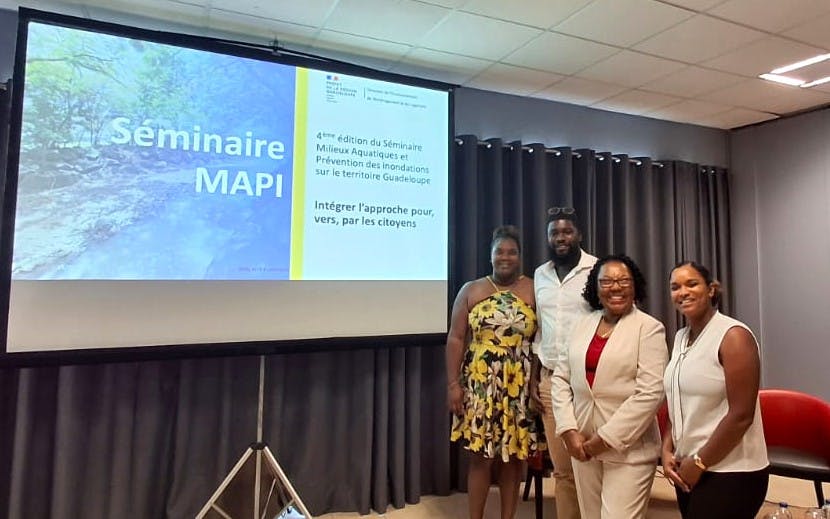 Sustainable development: Saint-Martin is committed to flood prevention and the preservation of aquatic environments
Sustainable development: Saint-Martin is committed to flood prevention and the preservation of aquatic environments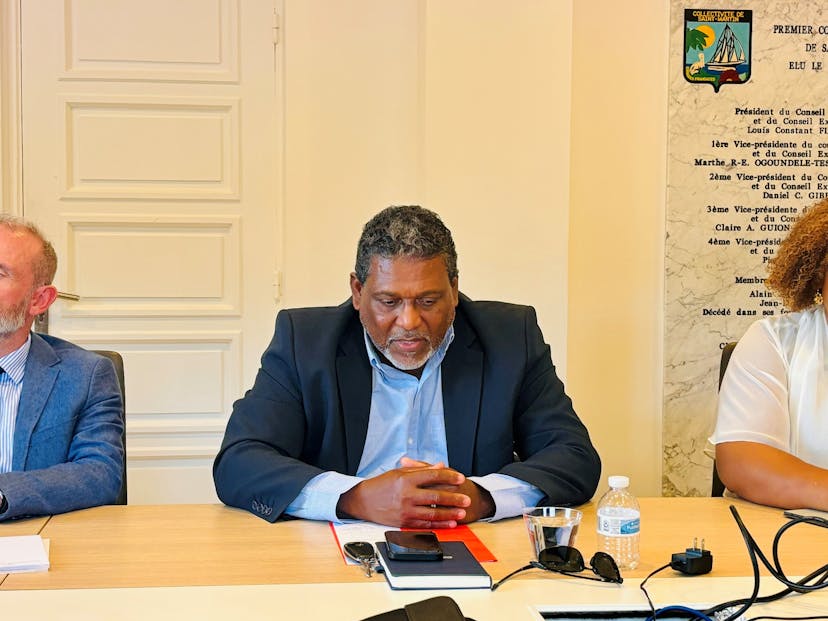
Conférence de Presse conjointe EDF-ETAT-COM : point de situation énergie à Saint-Martin
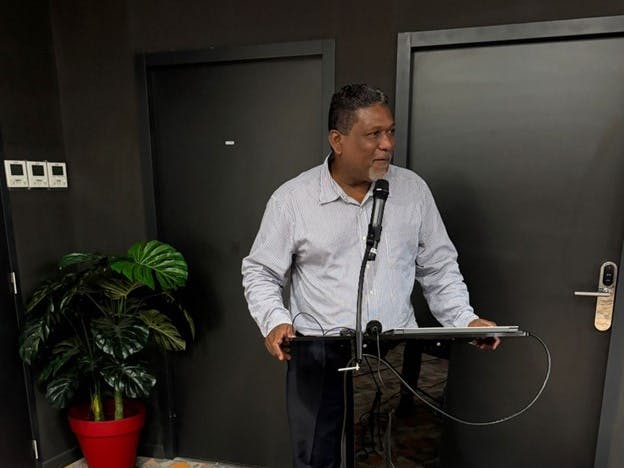
Conference of the Parties (COP): Saint-Martin organizes itself against climate change
